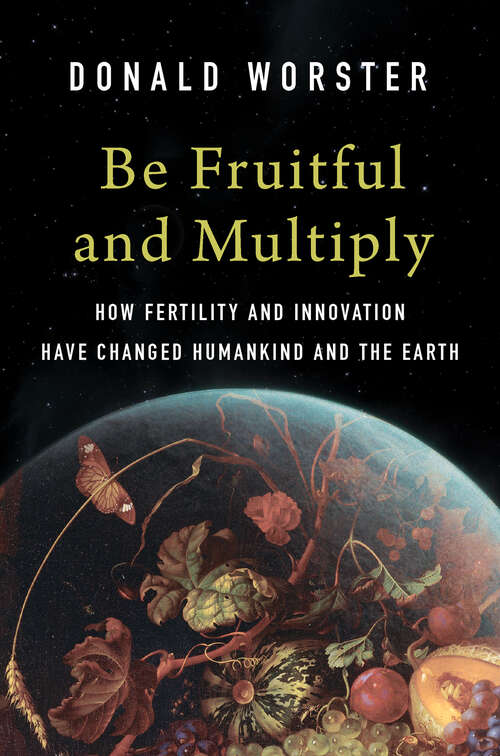Be Fruitful and Multiply: How Fertility and Innovation Have Changed Humankind and the Earth
By:
Sign Up Now!
Already a Member? Log In
You must be logged into Bookshare to access this title.
Learn about membership options,
or view our freely available titles.
- Synopsis
- A groundbreaking history that explores how human desires have affected our relationship with the natural world, and why this is a cause for hope Donald Worster looks back over 200,000 years of Homo sapiens sapiens to show how human nature, especially the drive for food and sex, has responded to environmental conditions throughout history. Examining how this process led from foraging to the agrarian revolution and then to a capitalist way of life, Worster brings us face to face with a third transformation of human society that is beginning to take shape in China: an ecological civilization. This meticulously researched book explores how human desires have driven us to overrun our environments, and how we have adapted by creating new relationships with the earth. Tying the past to the future and humans to the planet, Worster acknowledges that we are at a potentially dangerous tipping point. Yet he offers a surprisingly optimistic vision, full of faith in the strength of our human desires, to help us develop exciting futures in a changing world—as we have done time and again—and achieve a good life for the billions of us trying to survive on a finite planet.
- Copyright:
- 2025
Book Details
- Book Quality:
- Publisher Quality
- ISBN-13:
- 9780300286199
- Related ISBNs:
- 9780300278972
- Publisher:
- Yale University Press
- Date of Addition:
- 10/07/25
- Copyrighted By:
- Donald Worster
- Adult content:
- No
- Language:
- English
- Has Image Descriptions:
- No
- Categories:
- History, Nonfiction, Outdoors and Nature, Social Studies, Earth Sciences
- Submitted By:
- Bookshare Staff
- Usage Restrictions:
- This is a copyrighted book.
Reviews
Other Books
- by Donald Worster
- in History
- in Nonfiction
- in Outdoors and Nature
- in Social Studies
- in Earth Sciences
